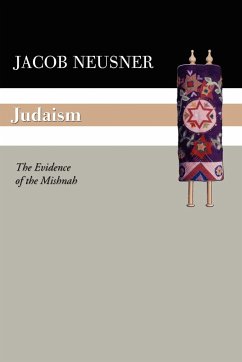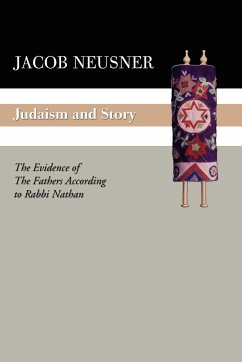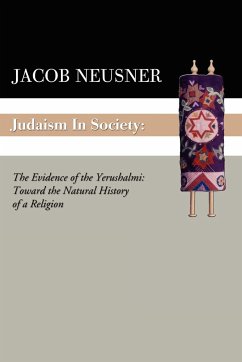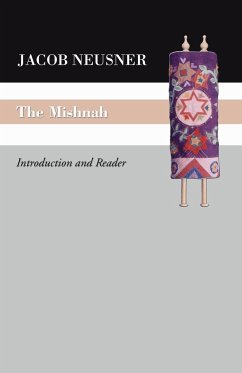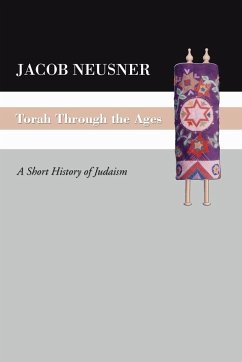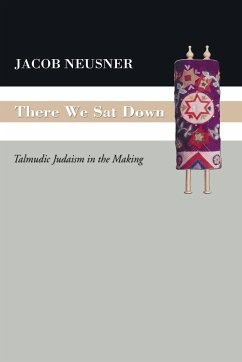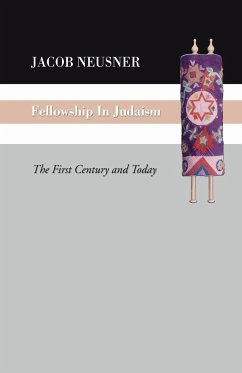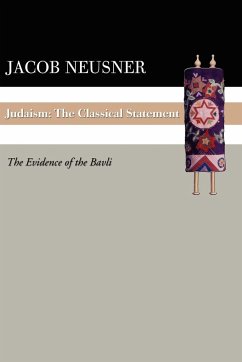
Judaism
The Classical Statement
Versandkostenfrei!
Versandfertig in 1-2 Wochen
27,99 €
inkl. MwSt.
Weitere Ausgaben:

PAYBACK Punkte
14 °P sammeln!
Produced ca. A.D. 600, the Babylonian Talmud--or Bavli-- serves as the single authoritative statement of Jewish law and theology. In this fourth volume of his examination of major formative texts of Judaism, Jacob Neusner explains how and why the Bavli came to define the Jewish faith from its time to ours. Through an analysis of the text, its sources and editorial organization, he traces the history of the composition of the Babylonian Talmud, clarifies its relation to the earlier corpus of canonical literature, and clearly establishes its philosophical, religious, and cultural context. Becaus...
Produced ca. A.D. 600, the Babylonian Talmud--or Bavli-- serves as the single authoritative statement of Jewish law and theology. In this fourth volume of his examination of major formative texts of Judaism, Jacob Neusner explains how and why the Bavli came to define the Jewish faith from its time to ours. Through an analysis of the text, its sources and editorial organization, he traces the history of the composition of the Babylonian Talmud, clarifies its relation to the earlier corpus of canonical literature, and clearly establishes its philosophical, religious, and cultural context. Because there is little objective, external evidence from which to interpret the Bavli's development, Neusner uses the signs of redactional layering within the literature to discover the motivations and techniques by which the Talmud was formed. His use of the critical, secular methods of modern literary and historical study is unique in Talmudic exegesis and provides an entirely new perspective for understanding the Bavli in relation to the Mishnah and Yershalmi, the Jerusalem Talmud. Much of Neusner's research compares the use of the various literary forms of the Mishnah by the editors of the two Talmuds. Offering detailed examples and statistical lists to buttress his analysis, he argues that only in the Bavli have the editors achieved a genuine redactional synthesis between the Mishnah and Hebrew Scriptures, the two major sources of the Jewish tradition. In conclusion, Neusner spells out the religious significance of Bavli's achievement and shows how this unique combination allows for the tradition's continual renewal.





